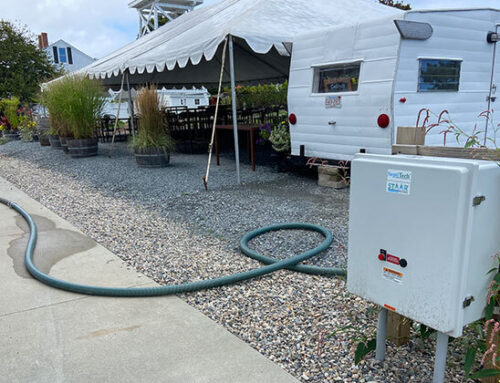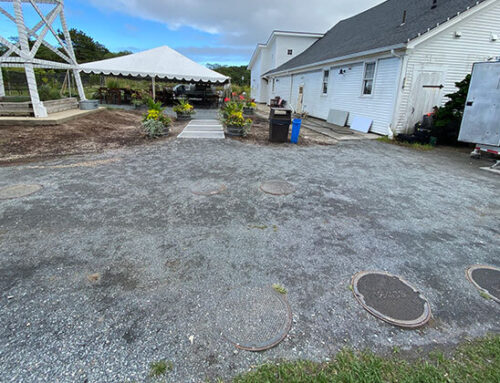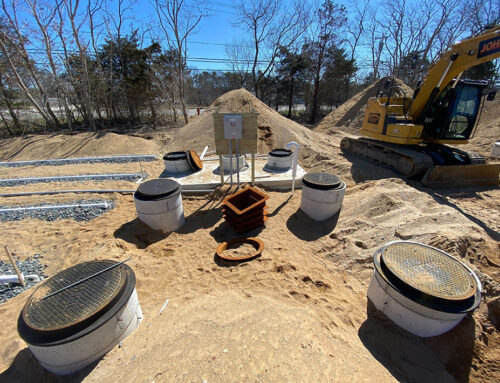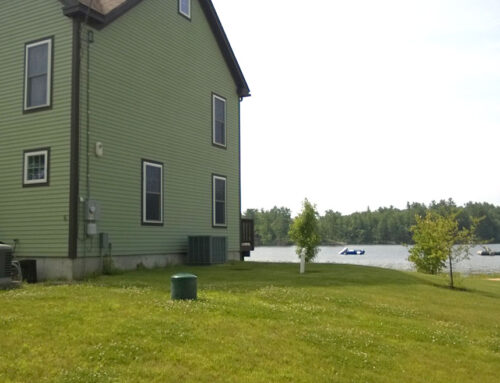As a leading provider of advanced wastewater treatment solutions in Portland, ME, SeptiTech is committed to promoting environmental sustainability through innovative technologies and processes. One crucial aspect of wastewater treatment that often goes unnoticed is denitrification.
In this comprehensive blog post, we will delve into the intricacies of wastewater denitrification in Portland, exploring its importance, mechanisms, and benefits for our community and the environment. We’ll cover the following topics:
- Understanding Nitrogen Pollution
- The Role of Wastewater Denitrification
- Explaining the Process of Denitrification
- Benefits of Wastewater Denitrification
Understanding Nitrogen Pollution:
Nitrogen pollution is a widespread environmental issue that arises from the excessive release of nitrogen compounds into water bodies. While nitrogen is an essential nutrient for plant growth and ecosystem balance, human activities such as agriculture, industrial production, and wastewater discharge have significantly increased nitrogen levels in the environment.
One of the primary sources of nitrogen pollution in wastewater is sewage effluent. Human waste contains nitrogen compounds, including ammonia and organic nitrogen, which are released into wastewater treatment systems. Additionally, agricultural runoff, stormwater runoff, and industrial discharges contribute to nitrogen pollution by introducing fertilizers, pesticides, and other nitrogen-containing chemicals into waterways.
Excess nitrogen in water bodies can lead to a range of environmental problems. Nitrogen stimulates the growth of algae and aquatic plants, leading to eutrophication—a process characterized by excessive plant growth, oxygen depletion, and harmful algal blooms. These blooms can produce toxins harmful to aquatic organisms and humans, leading to fish kills, habitat degradation, and public health concerns.
Addressing nitrogen pollution requires comprehensive wastewater treatment strategies, including the implementation of denitrification technologies. Wastewater denitrification in Portland plays a vital role in mitigating the adverse effects of nitrogen pollution and safeguarding the health of aquatic ecosystems.

The Role of Wastewater Denitrification in Portland:
Denitrification is a natural biological process that converts nitrate (NO3-) and nitrite (NO2-) into nitrogen gas (N2) or nitrous oxide (N2O) under anaerobic conditions. In wastewater treatment systems, denitrification occurs in anaerobic zones where oxygen levels are low or absent.
The denitrification process is facilitated by specialized bacteria known as denitrifies. These microorganisms use nitrate and nitrite as electron acceptors in their metabolic pathways, reducing them to gaseous nitrogen compounds. Denitrifiers belong to various bacterial genera, including Pseudomonas, Paracoccus, and Bacillus, each contributing to different stages of the denitrification process.
During the process of wastewater denitrification in Portland, denitrifying bacteria enzymatically reduce nitrate to nitrite, nitric oxide (NO), and finally, nitrogen gas (N2). Nitrous oxide (N2O), a greenhouse gas with potent global warming potential, may also be produced as an intermediate product. However, efficient denitrification systems aim to minimize N2O emissions through proper process control and optimization.
By converting nitrogen compounds into gaseous form, denitrification effectively removes excess nitrogen from wastewater, preventing its accumulation in water bodies and mitigating the risk of environmental pollution. Denitrification plays a crucial role in maintaining water quality, preserving aquatic habitats, and supporting the health and biodiversity of ecosystems.
SeptiTech’s denitrification solutions leverage advanced technologies and process optimization to enhance nitrogen removal efficiency and minimize environmental impact. By understanding the mechanisms and benefits of denitrification, wastewater treatment facilities can implement effective strategies to address nitrogen pollution and promote environmental sustainability.
Do you have questions about wastewater trickling filters in Portland?
Contact our team at SeptiTech today, we will be glad to help!
Explaining the Process of Wastewater Denitrification in Portland:
Anaerobic Conditions: Denitrification occurs in the absence of oxygen, typically in anaerobic zones within wastewater treatment systems. SeptiTech’s advanced designs ensure optimal conditions for denitrification, creating anaerobic environments where nitrogen-transforming bacteria can thrive.
Microbial Activity: Denitrifying bacteria, such as Pseudomonas and Paracoccus species, play a key role in the denitrification process. These bacteria utilize nitrate and nitrite as electron acceptors in their metabolic pathways, reducing them to nitrogen gas or nitrous oxide.
Nitrate Reduction: During denitrification, nitrate is sequentially reduced to nitrite, nitric oxide (NO), nitrous oxide (N2O), and finally, nitrogen gas (N2). Each step in this process is catalyzed by specific enzymes produced by denitrifying bacteria.
Nitrogen Gas Production: The end product of denitrification is nitrogen gas, which is harmless and inert. By converting nitrogen compounds into gaseous form, denitrification effectively removes excess nitrogen from wastewater, preventing its accumulation in water bodies and reducing the risk of environmental pollution.

Benefits of Wastewater Denitrification in Portland:
Environmental Protection: Denitrification helps mitigate nitrogen pollution, reducing the risk of eutrophication, algal blooms, and aquatic habitat degradation. By promoting environmental sustainability, denitrification contributes to the health and well-being of ecosystems and communities.
Regulatory Compliance: Many regulatory agencies require wastewater treatment facilities to meet stringent nitrogen discharge limits. Denitrification provides an effective means of achieving compliance with these regulations, ensuring that treated effluent meets quality standards before being discharged into the environment.
Cost Savings: Implementing denitrification technologies can lead to cost savings for municipalities, industries, and businesses by reducing the need for chemical additives and costly remediation measures. By optimizing nitrogen removal processes, SeptiTech’s denitrification solutions offer long-term economic benefits and operational efficiency.
In conclusion, wastewater denitrification in Portland is a critical process for mitigating nitrogen pollution and promoting environmental sustainability in Portland, ME, and beyond. SeptiTech’s advanced denitrification solutions offer efficient, reliable, and cost-effective means of achieving nitrogen removal goals while ensuring regulatory compliance and protecting aquatic ecosystems. By understanding and embracing the principles of denitrification, we can work together to build a cleaner, healthier future for our communities and the environment.
At SeptiTech, we are committed to advancing wastewater treatment technologies and practices to address the evolving challenges of nitrogen pollution and environmental conservation. Contact us today to learn more about our innovative solutions and how we can help you achieve your wastewater treatment objectives.
SeptiTech is a subsidiary of BioMircrobics, Inc. Our company is widely known for being at the forefront when it comes to manufacturing the certified STAAR® (Smart Trickling Anaerobic/Aerobic Recirculating) Filter Systems for more than 25 years. This innovative product effectively treats commercial and residential wastewater in onsite applications. Whether it’s large restaurants or single-family homes, SeptiTech provides the best wastewater trickling filters in Portland.
From advanced septic tank solutions to wastewater denitrification in Portland, SeptiTech is a company you can trust. We have received numerous awards over the years for everything from Environmental Technology Innovation to Nitrogen Reduction. Our systems are used in thousands of facilities across the nation and around the world.
If you are searching for the best residential or commercial trickling filter wastewater treatment in Portland, contact SeptiTech today by calling 207.333.6940. You can also fill out an online form and one of our friendly team members will be in contact with you very soon.
Thank you for choosing SeptiTech!







Leave A Comment